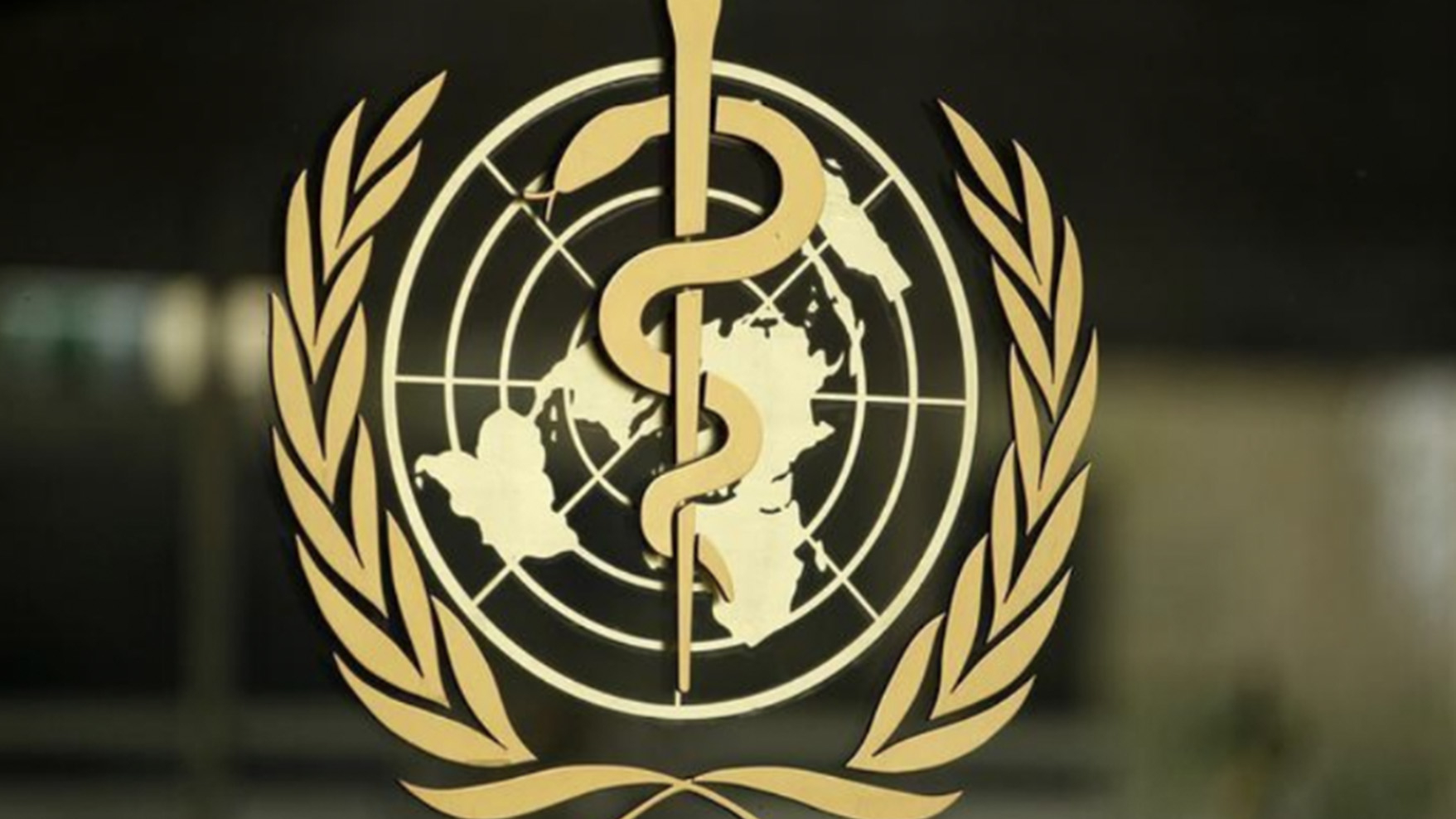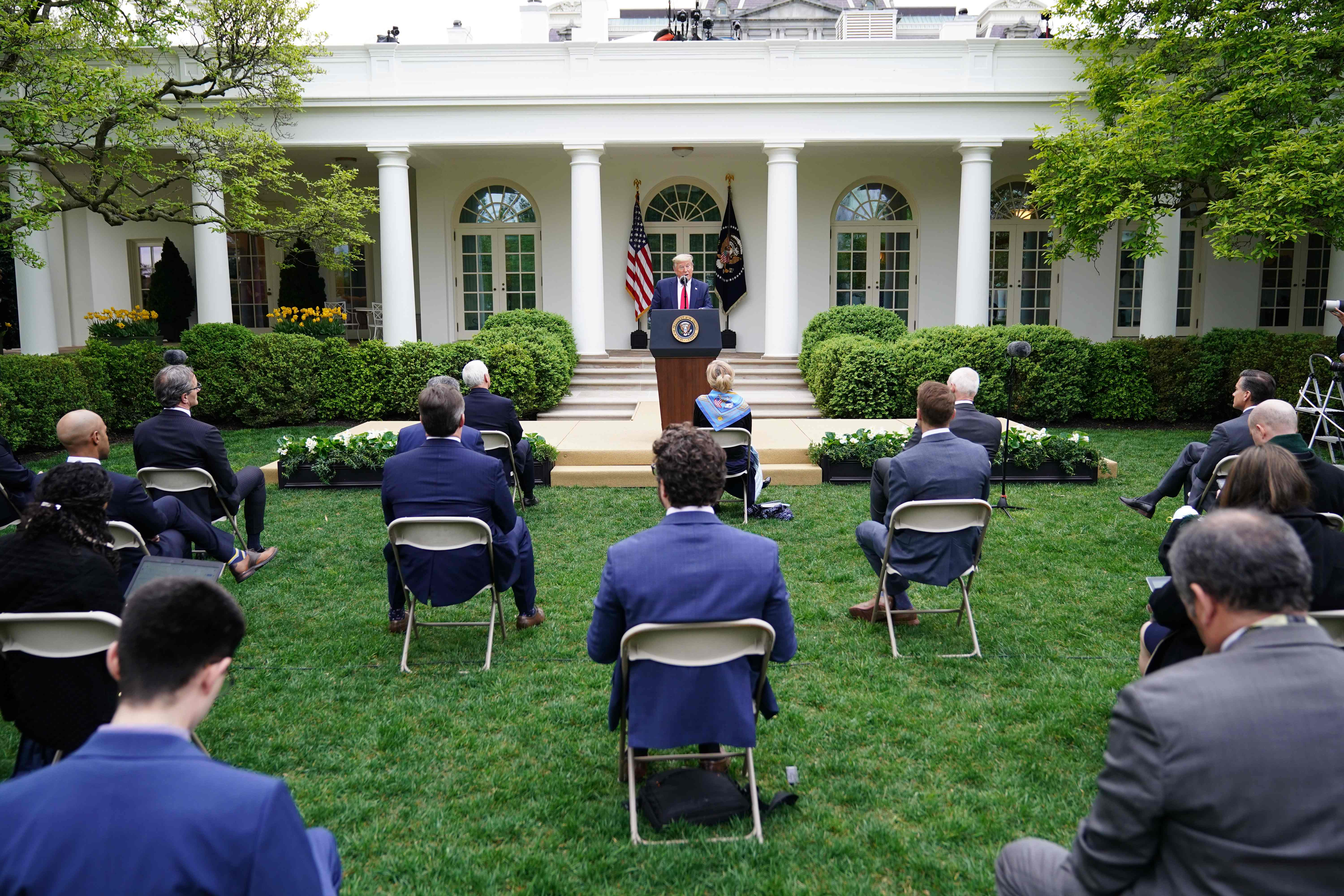02:49

The administration of U.S. President Donald Trump was aware of real-time information on the novel coronavirus pandemic as early as the crisis unfolded, said a Washington Post report on Monday that appeared to contradict Trump's claim it was a failure of communication from the WHO that resulted in the spread of the virus in the U.S.
Trump announced last Wednesday that his administration will halt funding to the WHO (World Health Organization ) for 60 to 90 days over its "slow response" and "pushing (of) misinformation from China." The administration accused the WHO of failing to communicate the threat posed by COVID-19, but the report suggested otherwise.
The report said the Trump administration was informed with real-time information about COVID-19 and its spread in China since the beginning of the outbreak last year from researchers and public health experts working at the WHO.
According to the report, a number of CDC staff members, including senior Trump-appointed health officials, were consulting regularly with the WHO as the crisis unfolded, U.S. and international officials were quoted as saying.
A statement from U.S. Department of Health and Human Services (HHS) later confirmed a group of 17 HHS members, including 16 from the CDC, were "working on a variety of programs, including COVID-19 and Ebola at the WHO in January," but emphasized that they are not decision-makers.

U.S. President Donald Trump speaks during the daily briefing on the novel coronavirus in the Rose Garden of the White House, April 14, 2020. /AFP
U.S. President Donald Trump speaks during the daily briefing on the novel coronavirus in the Rose Garden of the White House, April 14, 2020. /AFP
The findings suggested that the administration was aware of the virus and its outbreak at the very beginning, a claim against Trump's statement which attributed the spread of the virus in the United States to WHO's failure to communicate the extent of the threat due to "its desire to protect China."
However, when asked whether it was fair to blame the WHO for the spread of the virus in the U.S., politicians tend to shift the onus to China so as to divert public attention to their own mismanagement.
According to surveys conducted by Pew Research Center, 65 percent of Americans believe Trump responded late to the outbreak in terms of government's response, just 39 percent believe Trump portrays the real situation while 73 percent of the adults believe the worst is still to come.
Deborah Birx, a State Department expert who is part of the White House pandemic team, stressed the need to "over-communicate" when asked about WHO's share of information with the U.S.
Read more:
U.S. politicians find blaming China a perfect strategy in campaigns
How Trump mishandled coronavirus outbreak in U.S.
Trump's decision to halt funding to the WHO contrasts with the stance of other rich countries.
Following the G7 videoconference Thursday, all the G7 leaders except for Trump issued a strong statement backing the WHO, emphasizing the need to build up the organization, rather than tear it down.
German Chancellor Angela Merkel expressed full support for the WHO and "made clear that the pandemic can only be defeated with a strong and coordinated international response."
French President Emmanuel Macron "expressed his support for the WHO and underscored the key role it must play," in a statement.
WHO Director-General Tedros Adhanom Ghebreyesus did not directly address the complaint from Trump, but said the WHO's performance would be reviewed as part of a "usual process" to ensure transparency and accountability.
"We regret the decision of the president of the United States to order a halt in funding to the World Health Organization," Tedros said. "WHO is reviewing the impact on our work of any withdrawal of U.S. funding and will work with our partners to fill any financial gaps we face."